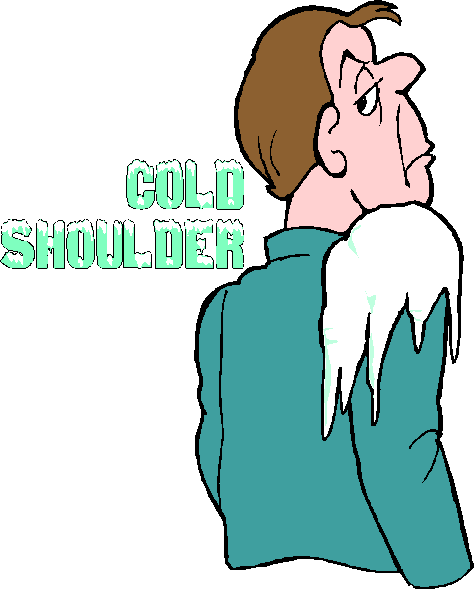Idioms make English more colorful and fun, but they are difficult to learn because there are so many of them. A good solution for learners is to study a small number of phrases that are related by topic. This makes them easier to learn and easier to remember.
Here are some useful idioms related to winter and the cold.
1. dead of winter—n. phr., the coldest part of winter. This idiom dates from the 1600s. Dead of is used to mean the most intense part of something. A similar idiom is the dead of night, which means the darkest part of the night.
Examples:
It’s the dead of winter, so you’ll find few birds here in the cold.
The thief disappeared into the dead of night.
2. break the ice—v. phr., to say or do something to start a conversation; to say or do something that gets people to relax.
Examples:
The instructor told a few jokes at the beginning of the class to break the ice.
Hal gets nervous when he meets people, but you can break the ice by asking him about sports. He loves sports.
3. on thin ice—adj. phr., in a risky or dangerous position. This idiom alludes to walking or skating on thin ice, which easily breaks. In places where lakes and ponds freeze over, people who want to ice skate or go ice fishing have to see if the ice is thick enough to walk on. The phrase is sometimes used with walking or skating: walking on thin ice, skating on thin ice.
Examples:
Shelly knew she was walking on thin ice when she came late to work for a third time in one week.
Carl was on thin ice with his father after he scratched his father’s car.
4. snowball effect—n. phr. A situation in which something gets increasingly worse or bigger. Think about taking a small snowball rolling along the ground, and it gets larger and larger as it goes.
Example:
As more people bought the stock, its price increased, making even more people want to invest in the company. It was a snowball effect.
5. snowball’s chance in hell—n. phr., very unlikely, or having no chance of success. This idiom, which dates from the 1800s, pictures hell as an extremely hot place, with lots of fire. A snowball of course would not be very successful in hell, as it would quickly melt.
Example:
Leslie doesn’t have a snowball’s change in hell of getting a job at that company; she doesn’t have enough experience.



















